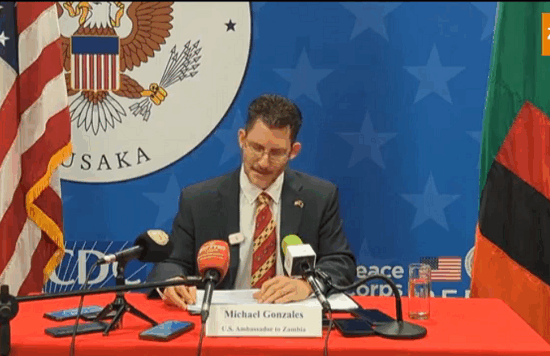
The current economic recession if not well handled and supported will a properly implemented stimulus package will lead to social unrest as the cost of living continues to rise while incomes remain stagnant with more people losing jobs in both the formal and informal sector.
Zambia is among countries whose economy has been adversely affected by covid-19 pandemic with the partial lockdown lagged effects now conning to the head. Many businesses like bars, hotels etc which also have downstream and upstream supply chains have all been adversely affected and are still struggling to get back on their feet.
Many Zambians are struggling to survive because the cost of living has gone up and average Zambians are finding it difficult to survive. Though the official statistics are reporting moderate inflation upswings, the reality on the ground is that people are hurting.
In a press statement made available to Zambian Business Times – ZBT, Chama Bowa-Mundia Social and Economic Development Manager at JCTR said that Zambia has seen a rise in the cumulative number of COVID-19 cases which now stands at 16,770 since two first cases were recorded in March 2020.
Chama said that the nation has in the past few months witnessed job losses, reduced economic activities and is projected to close the year with an economic [recession] growth rate of minus 4.2%.
JCTR added that the current context is also characterized by 16% inflation rate ( year on year for month of October 2020), discussions around Zambia’s increasing debt levels and the call by Government for debt cancelling to free up its fiscal space in view of COVID-19.
Zambia also has in the past few weeks witnessed a shortage in the supply of fuel in some parts of the country. He also explained that the shortage brings about its own challenges in the production chain crippling businesses activities as fuel is an essential input in the economy.
Furthermore, JCTR said that the cost of living for a family of five is measured by the JCTR for the month of October 2020 stood at K7,060.29, a decline of k11.08 from September basket of K7,071.37. He said that the reduction the basket can be attributed to reductions in some food items.
Chama further explained that other fruits moved from K261.19 to K206.65 for 14kg, showing a reduction of K54.54, kapenta reduced by K40.22 moving from K231.62 to K191.40 per kg, banana reduced from K181.66 to K163.57 showing a decline of K18.09, soya pieces reduced by 14.97 moving from K104.85 to K89.88.
However, that was offset by increases in items such as mealie meal which moved from K164.85 in September to K187.28 showing an increase of K22.43, vegetables increased by K39.49 moving from K31.00 in September to K70.49 in October and the price of charcoal increased by K18.67 moving from K273.33 to K292.00.
Chama said that undoubtedly, individuals, households and firms are facing significant challenges given the prevailing economic context. He disclosed that the JCTR therefore calls on the government to address the key challenges that the nation is facing. They added that the shortage of fuel needs to be urgently addressed given the important role it plays in facilitating various economic activities.
JCTR also explained that the center also continues to put emphasis on the need to guard against increases in macroeconomic variable such as inflation which further erodes the disposable incomes of households thereby compromising living standards.
Chama said that the JCTR reiterates the need to rein in an expansionary fiscal stance that has over the years threatened the delivery of robust and inclusive social and economic development. He said that “in our quest for better Zambia, the poor and the marginalized must be ignored.”







